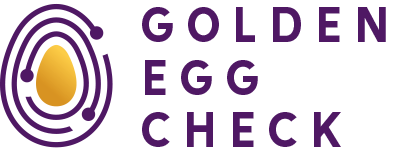Obtaining outside perspectives on your startup’s progress comes at critical development milestones. Founders benefit most from external evaluation during the idea validation phase, after developing a minimum viable product, before approaching investors, when encountering growth plateaus, and while pivoting business strategies. Timely assessment from qualified sources helps identify blind spots, validate assumptions, and refine approaches before committing significant resources to potentially flawed directions.
When should a startup seek external feedback or assessment?
The optimal timing for seeking outside perspectives aligns with key development stages in your startup journey. During ideation, external input helps validate your core assumptions before significant resources are committed. After developing your MVP, objective assessment can identify critical improvements needed before scaling. Pre-fundraising evaluation is particularly valuable, as it mirrors the investor scrutiny you’ll face while allowing time for adjustments.
Growth challenges signal another crucial moment for assessment—when metrics plateau or decline, external perspectives often identify operational issues invisible from within. Strategic pivots likewise demand outside validation to ensure you’re redirecting toward genuine opportunity rather than away from necessary challenges.
Remember that gathering perspectives too late means discovering critical flaws after significant resources have been expended, while your openness to feedback demonstrates valuable self-awareness to potential investors.
What types of external feedback are most valuable for early-stage startups?
For ventures in formative stages, certain feedback categories deliver substantially higher value than others. Customer feedback stands foremost—these direct insights validate whether your solution addresses genuine market needs and how users actually interact with your offering, not how you imagine they might.
Industry expert assessment provides specialized knowledge about technical feasibility, market dynamics, and regulatory considerations that founders may overlook. Investor evaluation offers perspective on business model scalability, market sizing, and growth projections—even when not actively fundraising, this lens helps identify weak points in your commercial strategy.
Peer review from fellow entrepreneurs who’ve navigated similar challenges offers practical operational insights without the agenda that sometimes accompanies investor feedback. Mentor guidance provides ongoing perspective from experienced business builders who understand both startup dynamics and your specific industry context.
The most valuable feedback addresses both short-term feasibility and long-term potential, helping you develop into what investors consider a “Money Maker”—a venture with both executable plans and significant upside.
How can startups effectively incorporate external feedback into their strategy?
Transforming outside insights into actionable improvements requires systematic processes. Start by developing a feedback framework that categorizes input based on its strategic implications—distinguishing between product features, market positioning, team composition, and business model concerns.
Not all feedback deserves equal weight. Prioritize input based on source credibility, alignment with your core vision, and supporting evidence. A structured assessment helps separate signal from noise, particularly when feedback points in contradictory directions. When multiple credible sources highlight the same concern, that convergence usually indicates a genuine area for improvement.
Distinguish between actionable and non-actionable feedback. Some insights require immediate implementation, while others might be valuable but premature for your development stage. Create a feedback implementation roadmap with clear ownership and timelines for addressing high-priority items.
Finally, measure the impact of implemented changes. Establish metrics to evaluate whether adoptions from external feedback genuinely improve performance across relevant indicators, creating a continuous learning cycle.
Why do investors place high value on startups that actively seek external assessment?
Investors consistently favor founders who demonstrate willingness to subject their ventures to outside scrutiny. This preference stems from several factors that signal promising investment opportunities. First, seeking assessment demonstrates what do investors look for in a startup—founder coachability and learning orientation. Investors recognize that even brilliant entrepreneurs benefit from guidance, and those who proactively seek it typically adapt faster.
External feedback pursuit also signals risk awareness. Founders who seek assessment understand their knowledge limitations and work to mitigate blind spots rather than proceeding with dangerous overconfidence. Market validation through external channels further reduces investment risk by confirming demand exists beyond the founder’s assumptions.
The growth mindset displayed through feedback-seeking behavior indicates founders who view their venture as a continuously improving entity rather than a perfected concept. This quality correlates strongly with adaptability during inevitable market shifts and competitive pressures.
Ultimately, investors recognize that external assessment helps startups progress from merely promising concepts to ventures with both high potential and executable pathways to achieve it—the ideal investment profile.
What are the risks of seeking external feedback too early or too late?
Timing external assessment incorrectly can create significant challenges for founders. Premature feedback often leads to unnecessary discouragement when concepts aren’t sufficiently developed to demonstrate their value. Early-stage ideas may appear fundamentally flawed when they simply need refinement. Excessive early assessment can also trigger unnecessary pivots before concepts have adequate market testing.
Conversely, delayed feedback creates even greater risks. Resources get wasted building features or pursuing strategies with fundamental flaws that external perspectives would have identified. Market opportunities may narrow while founders perfect aspects of their business that external advisors would have deprioritized.
The confirmation bias risk appears at both timing extremes. Early-stage founders often unconsciously select feedback sources that will validate their vision, while later-stage founders develop resistance to contradictory information after significant investment in their current approach.
The ideal timing provides enough concept development to enable meaningful assessment while maintaining flexibility to implement significant changes without prohibitive costs.
Who should startups approach for the most objective external assessment?
Securing truly valuable evaluation requires identifying sources with both relevant expertise and appropriate objectivity. Domain experts with deep industry knowledge can evaluate technical feasibility and market positioning but may lack entrepreneurial context. Potential customers provide essential product feedback but often can’t assess business model viability or scalability concerns.
Experienced entrepreneurs, particularly those who’ve built similar businesses, offer investor readiness insights and operational guidance. Industry analysts maintain broader market perspective that helps position your venture within competitive landscapes. Specialized startup assessors, like accelerator programs and dedicated evaluation services, provide structured frameworks that comprehensively examine business fundamentals.
Qualifying the right feedback providers involves evaluating their relevant experience, understanding their potential biases, and determining whether they grasp both your vision and market context. The most valuable assessment often combines perspectives from multiple categories rather than relying on a single source, regardless of credentials.
Look for advisors who balance critical analysis with constructive solutions rather than simply identifying flaws without actionable recommendations.
Making the most of startup feedback: practical implementation steps
Maximizing assessment value requires systematic application of received insights. Begin by establishing regular feedback loops at predetermined development milestones rather than seeking input sporadically. Schedule structured review sessions after significant product iterations, prior to fundraising efforts, and when considering substantial strategic shifts.
Document feedback methodically, categorizing insights by source credibility, implementation complexity, and potential impact. This creates an actionable repository rather than overwhelming collection of contradictory suggestions. Develop decision frameworks for determining which feedback warrants implementation, considering alignment with core mission, resource requirements, and corroboration across multiple sources.
Create accountability mechanisms for implementing high-priority feedback, assigning clear ownership and timeline expectations. Measure results against pre-implementation baselines to validate whether changes produce anticipated improvements.
We at Golden Egg Check understand that objective assessment represents one of the most valuable assets for ambitious founders. Our structured evaluation approach helps identify both strengths to emphasize and weaknesses to address before approaching investors, increasing your readiness for important growth conversations. By embracing external perspectives strategically, you transform potential criticism into competitive advantage.




